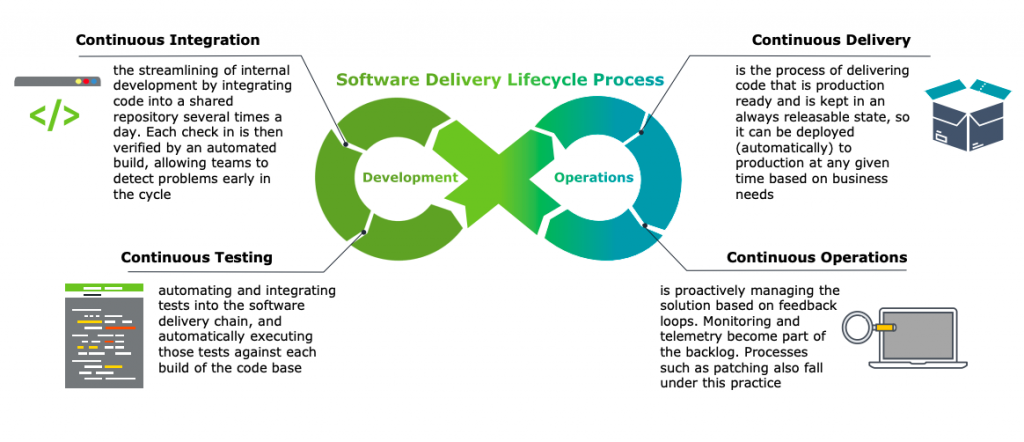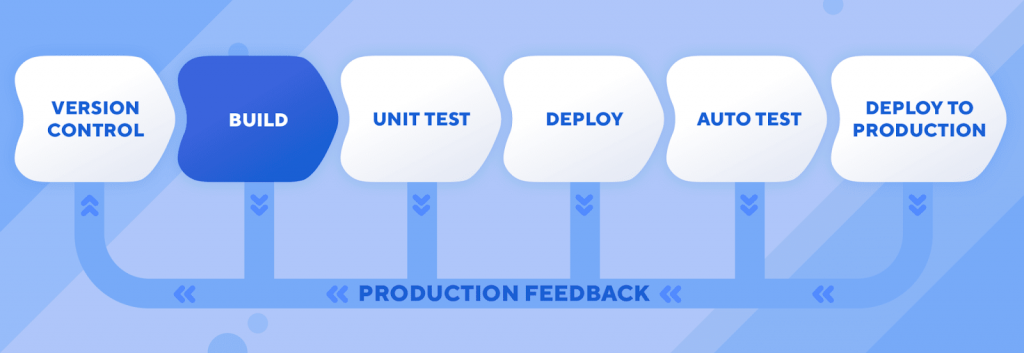A DevOps engineer works with software developers and other IT staff to manage the design, development, and release of software products. Their role is to encourage collaboration between the development and IT teams to create better products.
To achieve their goals, DevOps engineers must have excellent communication skills and a basic understanding of code. Communication is required to foster a collaborative environment while coding knowledge is necessary to make small occasional code changes.
In this post, we’re discussing everything about DevOps engineers: their roles, responsibilities, skills, and importance.
Table of contents:
- What is a DevOps engineer?
- Roles of DevOps engineers in software development teams
- How DevOps engineers work with clients at IDAP Group
Cost-effective software development outsourcing? That’s IDAP. Get your software made by a company rated 4.9 stars on a Clutch.
What is a DevOps Engineer?
A DevOps engineer is an IT professional responsible for involving software developers (Dev) and IT operations (Ops) in one product lifecycle (DevOps). This lifecycle minimizes the time needed to deploy, test, and release software, thus improving the company’s ability to deliver high-quality software projects faster.
The DevOps strategy does several things differently compared to the traditional approach. For example, it commands to produce smaller parts of software instead of large chunks, which speeds up the integration, testing, delivery, and quality.
Result: 84% of developers following the strategy say they “release software faster than ever before.” 57% also report their releases are twice as fast.
This video has more details about how DevOps speed up software delivery.
DevOps Engineer Roles in Software Development Teams
Today, 83% of IT companies are implementing DevOps practices. DevOps engineers are leading the change with a wide-ranging knowledge of both software development and IT operations, including coding, testing, access & infrastructure management, deployment, risk analysis, and others.
DevOps engineer roles and responsibilities vary from one company to another. But the main ones include the following.
Improve collaboration between developers and IT staff
On conventional teams, software developers (folks who create the code) and IT operation staff (folks who deploy IT systems and maintain infrastructure) have conflicting interests and often “don’t get along.”
Two problems cause this outcome: siloed responsibility and opposing goals. Developers don’t know infrastructure requirements and code support, so they give the code to IT operations for deployment. If issues arise, IT often assumes that poor code quality is the reason.
That’s why bringing developers and IT operations together is a great responsibility of DevOps engineers. To achieve this goal, they implement four DevOps practices: Continuous Integration (CI), Continuous Delivery (CD), Continuous Testing (CT) and Continuous Operations (CO), that make up the CI/CD pipeline.
Here’s how the four practices transform the software delivery process.

More info about CI/CD, CT & CO: DevOps Principles Explained
Manage automated software delivery processes (CI/CD pipeline)
Creating and managing the entire CI/CD pipeline is the primary responsibility of DevOps engineers. This means they design every step that must be completed to deliver a new version of software (planning, developing, testing, deploying, etc.)
As the project starts, DevOps engineers will also find ways to optimize the pipeline to speed up the time to market without sacrificing the quality. For example, they recommend conducting various tests during development to ensure continuous quality assurance.

Oversee code releases
Conducting regular checks to ensure quality code is an essential responsibility of DevOps engineers. This way, they discover issues or confirm that the code meets the company’s (or the client’s) quality standards.
Unlike the traditional approach, DevOps release management includes planning, scheduling, and controlling software product development and delivery. Throughout this process, DevOps engineers work together with developers from the beginning to the end, achieving faster feedback loops and releases.
Help with project management
DevOps also have project management skills to foster a factorable environment for developing and improving the software product. They’re responsible for analyzing the needs and technical requirements of clients at the beginning of software projects.
Also, they work alongside project managers to help them create project plans. Specifically, they’re involved in risk assessment, cost and benefit analysis, product feature analysis, resource planning, and timeline projections.
Project manager is another person who supports clients from the very beginning to the end of software projects. Here’s what they do: Role of Project Managers in App Development Projects.
Mentoring and supporting team members
DevOps engineers are also tasked with mentoring and training software developers, testers, and other team members. It’s a part of the proper implementation of the DevOps culture, which ensures collaboration and issue resolution.
Also, team members come to DevOps engineers for help with eliminating process bottlenecks and issues preventing them from doing their job properly. Since this position is part of planning work processes, they have an intimate knowledge of the best practices, which gives them a good opportunity to support the team.
Provide incident response and management
Security is a major consideration in software development, so it’s only natural that DevOps engineers are involved in these processes. Besides working with testers on security automation projects, they collect data and metrics to develop better security incident responses.
Another major DevOps engineer role is to create a culture of blameless, open communication between software developers and IT staff. This culture is essential to ensuring quick incident detection and effective resolution.
Looking for a software idea to launch your business? These 20+ App Ideas for Startups can inspire you to come up with something special.
Approach of Our DevOps Engineers to Software Projects
We are a full-cycle software development outsourcing company…
Let me stop for a second.
Instead of promoting our company as many others, I’m just gonna say this:
For us, DevOps is a culture of working where teamwork, shared responsibility, system thinking, and communication are embraced as keys to success.
What does that mean for you as a client?
When you hire IDAP for your software development needs, you’ll get an experienced DevOps engineer helping achieve faster time to market and increased profitability of your software product.
This person will:
- Work with you to understand your business needs
- Explain your needs to the software development team
- Monitor and manage the entire software delivery process
- Support team members in implementing DevOps principles
- Communicate with you throughout the project to keep you updated
The result will be a simplified software deployment process and faster achievement of your business goals.
Testimonial from an IDAP Client
“I’ve never encountered a piece of software before that had so few bugs or problems in it during development.”
Greg Brooks, Director of TechRiver
Summary
DevOps engineers play an essential role in successful software development projects. They bring two major teams (developers and IT staff) together to make code delivery faster and more efficient. So, as a client of a software development company, the chance is high you’re going to be working with these professionals.
If you have a software idea you’d like to implement, check IDAP out. We’re a full-service software development company that helped over 20,000 clients from North America and Europe.



